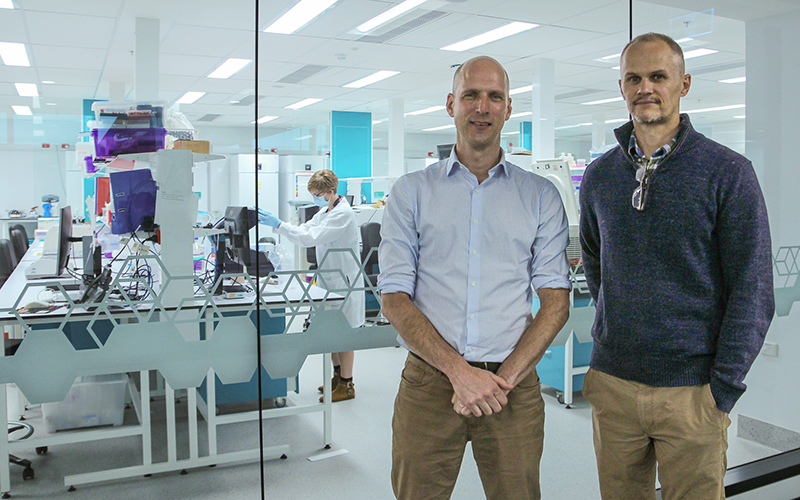Search
Showing results for "Professor"

Research
Setonix Pharmaceuticals: Enhancing immuno-oncology with small molecule drugsSetonix Pharmaceuticals aim to develop orally available immunotherapy drugs that are optimally effective with minimal side effects, improving outcomes for cancer patients.
Research
Infant respiratory infections and later respiratory hospitalisation in childhoodThe aim of this study was to use total-population based data on an otherwise healthy population of children to assess the relationship between early...
Research
Breadth of immune response, immunogenicity, reactogenicity, and safety for a pentavalent meningococcal ABCWY vaccine in healthy adolescents and young adultsA multicomponent meningococcal serogroups ABCWY vaccine (MenABCWY) could provide broad protection against disease-causing meningococcal strains and simplify the immunisation schedule.
Research
Improved Glycemic Outcomes With Diabetes Technology Use Independent of Socioeconomic Status in Youth With Type 1 DiabetesTechnology use in type 1 diabetes (T1D) is impacted by socioeconomic status (SES). This analysis explored relationships between SES, glycemic outcomes, and technology use.
Research
The Changing Detection Rate of Respiratory Syncytial Virus in Adults in Western Australia between 2017 and 2023The incidence of respiratory syncytial virus (RSV) in adults is inadequately defined and the impact of SARS-CoV-2-related non-pharmaceutical interventions (NPIs) is underexplored. Using laboratory data, we described the detection rate of RSV in adults ≥16 years in Western Australia (WA) between 2017 and 2023.
Research
Meningococcal Disease in the Post–COVID-19 Era: A Time to PrepareThe global invasive meningococcal disease (IMD) landscape changed considerably during the COVID-19 pandemic, as evidenced by decreased incidence rates due to COVID-19 mitigation measures, such as limited social contact, physical distancing, mask wearing, and hand washing. Vaccination rates were also lower during the pandemic relative to pre-pandemic levels.
Research
Developing a prediction model to estimate the true burden of respiratory syncytial virus (RSV) in hospitalised children in Western AustraliaRespiratory syncytial virus (RSV) is a leading cause of childhood morbidity, however there is no systematic testing in children hospitalised with respiratory symptoms. Therefore, current RSV incidence likely underestimates the true burden.
Research
Quality of life is poorly correlated to lung disease severity in school-aged children with cystic fibrosisThere is no data exclusively on the relationship between health-related quality-of-life (HRQOL) and lung disease severity in early school-aged children with cystic fibrosis (CF). Using data from the Australian Respiratory Early Surveillance Team for Cystic Fibrosis (AREST CF) we assessed the relationships between HRQOL, lung function and structure.
Research
A Prospective Study Investigating the Impact of Obesity on the Immune Response to the Quadrivalent Influenza Vaccine in Children and AdolescentsObesity can increase the severity of influenza infection. Data are limited regarding immune responses to influenza vaccination in obese children. We aimed to investigate the impact of obesity on quadrivalent influenza vaccine responses in children.
Research
Integrate, Identify, Intervene (Triple I Project): Identifying opportunities for preventing respiratory infections in children through integrating population-based health and laboratory dataChristopher Hannah Blyth Moore MBBS (Hons) DCH FRACP FRCPA PhD OAM BSc (Hons) GradDipClinEpi PhD Centre Head, Wesfarmers Centre of Vaccines and
